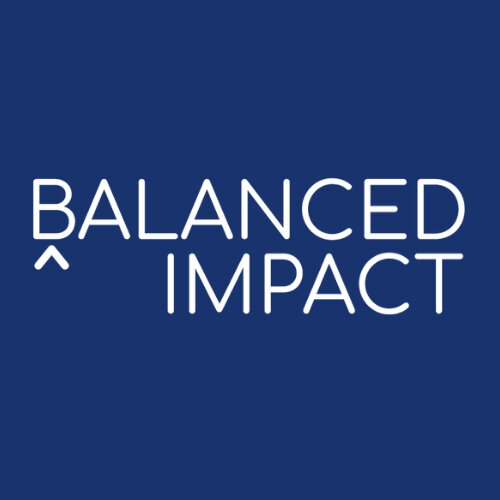Inspiring sustainable brands
2020. Not a year we are likely to forget in a hurry. Heart breaking, bizarre, at times frightening, and at others, uplifting.
For us in the Balanced Impact office, 2020 has been all of those things and more. But like many others, the chance to slow down allowed for some reflection and we are now excited to be accelerating plans that we have discussed for some time: small changes to the way we work which will help us contribute to positive impacts for our planet.
While the fallout of the US elections has brought some hope for the climate crisis, this is the year that saw the concentration of carbon dioxide in our atmosphere rise to the highest it has been in human history. The evidence is overwhelming and each and every one of us has a collective responsibility to do something about it.
We have always aimed for a sustainable way of living and working but this is the year that we have committed to doing more.
We will soon be announcing our 2021 sustainability pledge, a combination of values and actions to which we will hold ourselves accountable, for the coming year and every year after that.
In the meantime, we thought we’d share a round up of some of the ethical brands that have been inspiring us with their actions towards a greener and fairer world.
Patagonia
Top of our list and one of the most inspirational brands on the planet, Patagonia is a B-Corp (Benefit Corporation) which means that its employees, communities and the environment rank alongside shareholders in decision-making processes. Powerful stuff for a company with an estimated $800 million in revenue in 2019.
The company produces sustainable and Fair Trade outdoor clothing and are well known for their recycling programme; recycling 100 percent of the gear returned to them through the ‘Worn Wear’ program. In 2018, this equated to 6,797 pounds of products.
One of the coolest things about the brand is the way that their values transcend the products they sell. In 2017, Patagonia joined a lawsuit against the Trump administration over its decision to launch the largest rollback of federal land protection in America’s history; reducing the size of two huge national monuments, by 85 per cent.
In fact, Patagonia is a long-time supporter of climate activism; closing all of its shops and offices for the Global Climate Strike in 2019 and hiding political messages on the underside of its clothing tags ahead of the 2020 US election; “vote the assholes out”.
In 2019, Patagonia donated $10 million to help combat climate change. This was how much the company had saved in 2017, after Donald Trump cut US corporation tax from 35% to 21%.
The Cooperative
The seemingly unassuming Co-op is one of the largest consumer cooperatives in the world with over 4.6 million members.
Pioneering fair trading, a perhaps little known fact is the company had the UK’s first Fairtrade bananas and it carries the Fairtrade mark many of its own-brand products.
The wholly member-owned business set itself some reformist targets when it comes to the environment. In 2017, the company smashed its 2020 target to reduce direct greenhouse gas emissions from operations by 50%, 3 years ahead of time. And this year, the Co-op is on track to make 80% of packaging ‘easy to recycle’ by the end of the year.
Unlike some of the big four supermarkets, the Co-op is a Fair Tax Mark accredited company, committing to paying a fair rate of tax which helps fund our essential services.
Lush cosmetics
Inventors of the bath bomb, the vegan cosmetics produced in the Lush kitchens smell pretty...well, lush!
Lush only sells cruelty-free cosmetics. None of their own products are tested on animals and, since 2007, they have avoided any ingredients or suppliers involved in animal testing. They even provide training on alternative methods to suppliers which demonstrate real commitment to spreading the word of cruelty-free.
Like the Cooperative, Lush is Fair Tax accredited and has strong policies addressing politically controversial behaviour. Following reports of child and forced labour in mica supply chains, Lush stopped using the mineral in its products and started using synthetic mica, made from natural minerals.
People Tree
People Tree is a pioneer in Fair Trade and sustainable fashion and is fair trade certified throughout the whole supply chain. The company supports producers with fairer and greener working practises, like hand skills training and the development of natural and low-impact dyes and organic cotton farming.
The hand skills involved in their garment manufacturing - including hand embroidery, hand dyeing and hand knitting - have a significantly lower carbon footprint than machines, as well as creating fair employment. Other sustainable manufacturing practices used by People Tree include a solvent-spinning process which recycles water and reuses the solvent at a recovery rate of more than 99%.
People Tree has also committed to using more sustainable fabrics. In 2018, 93% of People Tree cotton was Global Organic Textile Standard Certified Cotton (GOTS), which means that it is traceable from the seed to the finished product. The company uses TENCEL™, in their clothing production; a sustainable fibre which transforms wood pulp from sustainably managed plantations into cellulosic fibres with low environmental impact. TENCEL ™ is also biodegradable and compostable.
We’d love to hear from you. Get in touch and tell us which brands are inspiring you.
